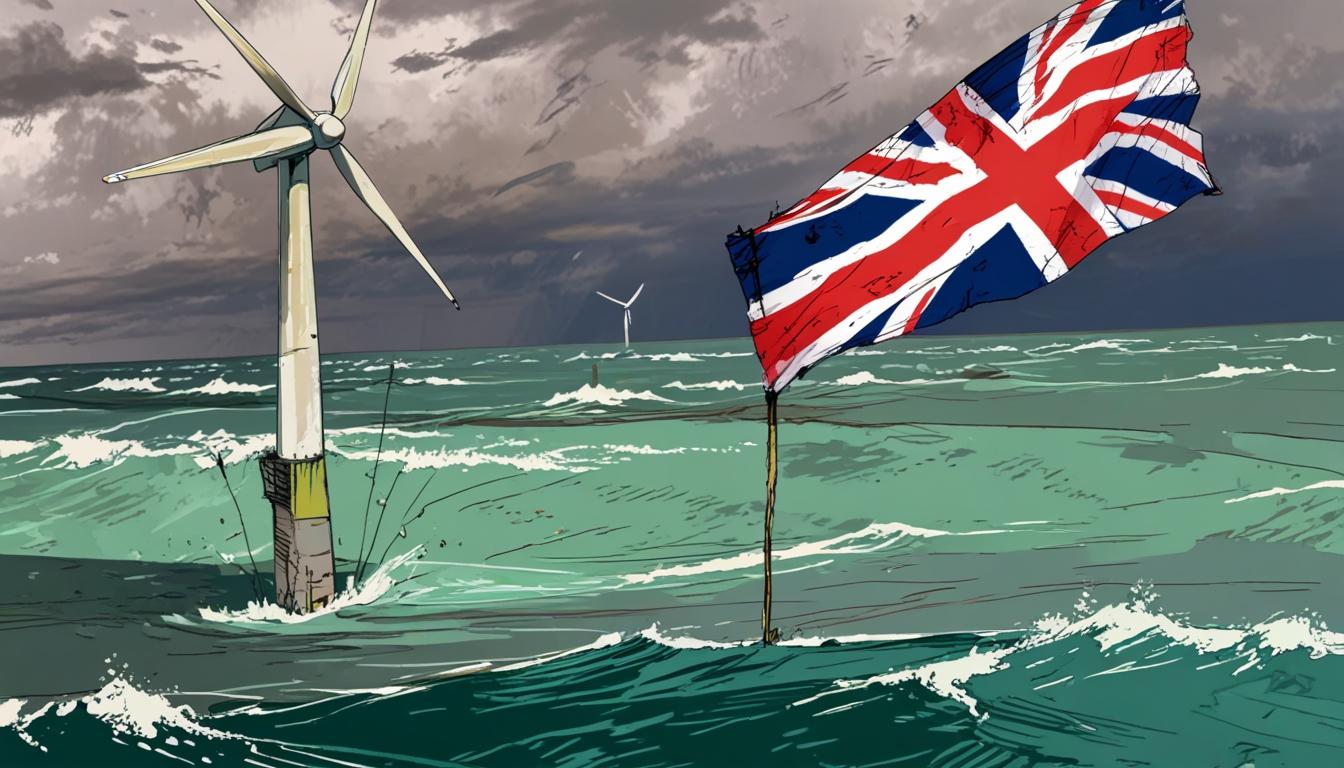Ed Miliband’s grand vision for a green-powered Britain is quickly unraveling, as recent decisions have thrown the nation’s renewable energy strategy into disarray. The cancellation of the Hornsea 4 offshore wind project, a cornerstone of Miliband’s “Clean Power 2030” initiative, raises serious questions about his ability to deliver on ambitious promises. This significant setback highlights the mounting challenges of rising costs, interest rates, and broader geopolitical issues that threaten not only the green agenda but also the economic stability of the country.
The abrupt decision by Ørsted, the Danish energy giant behind Hornsea 4, is particularly alarming. They cited soaring construction costs and heightened market risks as reasons, and some insiders point to political decisions, including those from the US, that have sent shockwaves through the sector. Ørsted’s market value has plunged nearly 80% since its 2021 peak, underscoring the precarious state of renewable energy investments amidst a landscape increasingly unfriendly to ambitious green initiatives. This crisis has compelled Ørsted to slash its investment strategy by 25% through 2030, raising red flags about the viability of future projects.
With the cancellation of Hornsea 4, the UK faces a staggering shortfall of 14.4GW, creating an urgent need to install around 3,000 new turbines by 2030—a target many experts deem wildly unrealistic. Despite government assurances that replacements will soon be sought, industry experts warn of inevitable delays and ballooning costs, potentially leading to higher energy bills for consumers already grappling with escalating prices.
This situation resonates with a recent poll by Merlin Strategy, showing that a whopping 59% of respondents prioritize tackling the cost of living crisis over ambitious net-zero rhetoric. This demand for immediate economic relief transcends party lines, with voters across Labour, Conservative, and opposition parties calling for action that addresses pressing financial concerns instead of lofty climate promises. Dr. Lawrence Newport, a keen analyst, encapsulates this frustration, noting that voters aren't against clean energy; they're wary of the political façade that obscures rising costs and unfulfilled green commitments.
Further compounding these concerns, former Conservative Energy Secretary Claire Coutinho has criticized Miliband’s “Clean Power 2030” plan as utterly unfeasible. She warns that the cancellation of Hornsea 4 has worsened an already unstable situation, underscoring how dependence on such lofty targets could destabilize consumers and jeopardize businesses across the UK.
In a desperate attempt to salvage its energy ambitions, the government has announced a significant boost in funding for offshore wind projects, elevating its 'Clean Industry Bonus' scheme from £200 million to £544 million. While this investment is intended to revitalize private sector enthusiasm in a climate of uncertainty, many view it as a too-little, too-late measure. Given the recent turbulence in the sector, investor confidence hangs by a thread.
As frustration simmers among the electorate over skyrocketing costs and stalled green initiatives, the Labour government finds itself trapped: It must either abandon its green policies and risk alienating its core base, or continue to pursue unattainable environmental goals while ignoring the immediate struggles of ordinary citizens. The stakes couldn't be higher, as the tension between pressing economic needs and lofty climate objectives echoes the divisive debates seen during Brexit.
The onus is now on policymakers to strike a delicate balance between addressing the cost of living crisis and recalibrating their green ambitions. As polling data suggests, without concrete steps to alleviate financial strain, any lofty plans for a sustainable future stand to falter, further eroding public trust in the political establishment's commitment to both economic viability and environmental stewardship.
Source: Noah Wire Services
